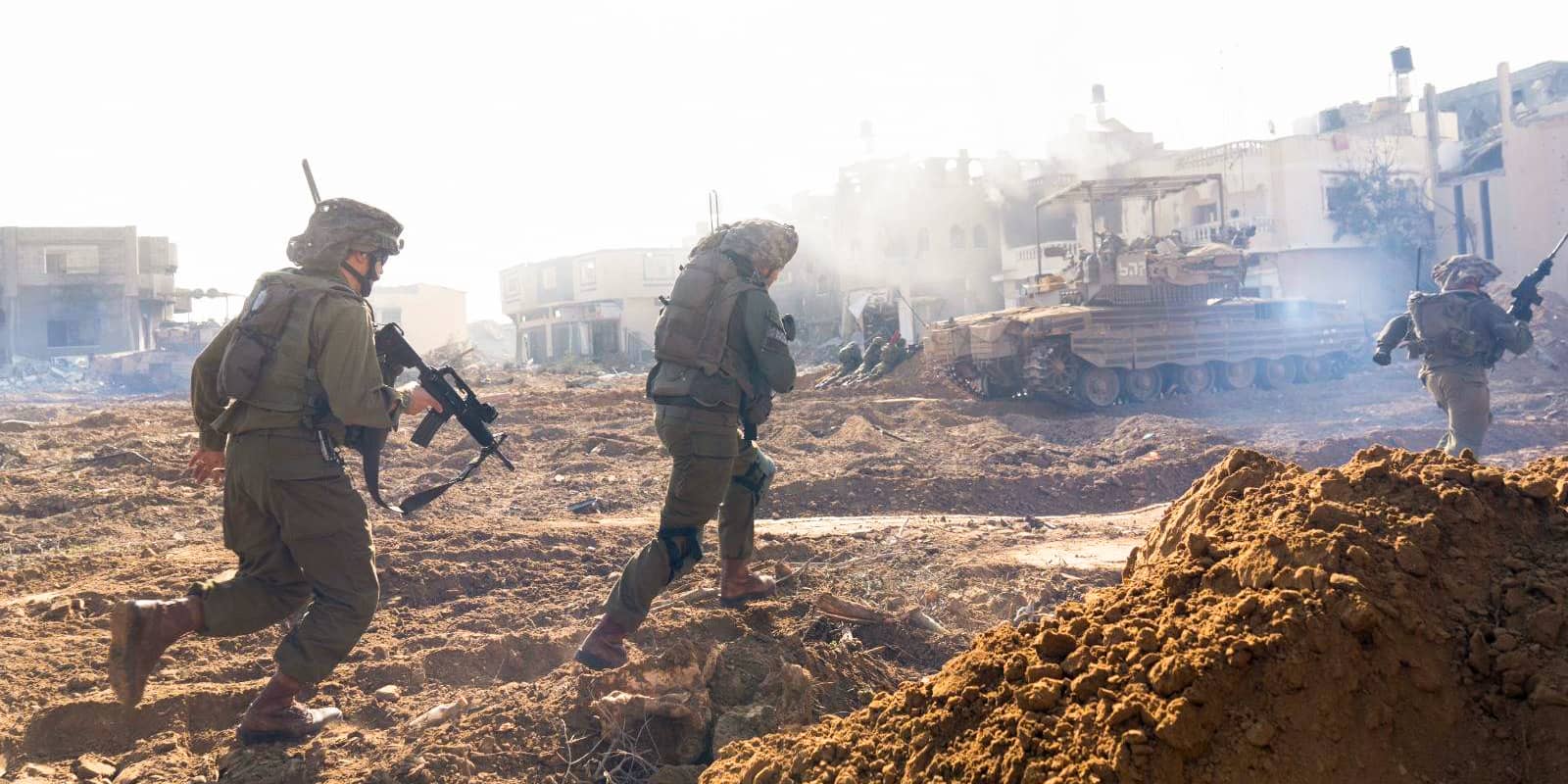The hostage situation is of utmost importance and must be handled with sensitivity. Creativity, daring and flexibility are required to gain their release. The Government of Israel, however, must not be drawn into surrender to Hamas’ demand to end the war. It should also resist the signs of demoralization and skepticism – in the media, and within the defense establishment – casting doubts on the prospects of bringing down Hamas’ rule in Gaza, when progress on the ground points to the IDF’s capabilities.
Hamas has lost the military battle, after its initial breakthrough on October 7; and despite the ongoing provocations from Lebanon and Yemen, it has not been able to bring about the “unification of fronts” against Israel. If, despite this outcome it is able to generate a sense of survival and victory – due to pressure over the hostages, resumed internal divisions in Israel, and eroding American and international support – this will have disastrous consequences for Israel’s ability to defend its citizens and to deter future aggression on all fronts. Such a strategic achievement for Hamas will also undermine Israel’s regional standing for many years to come; and will have a lingering impact on the balance of power between totalitarian Islamism – with Hamas as one of its most salient proponents – and the forces seeking stability, a western orientation, and hence also peace with Israel.
Demoralization as a strategic tool
Basil H. Liddell Hart, one the most prominent military theoreticians of the 20th century, points to how Nazi Germany under Adolf Hitler gained its initial dramatic success: the Austrian corporal shook off the strategic mistakes of the World War I generals and focused on the psychological aspects of warfare (at least until the point at which hubris led him to the ill-fated assault on the Soviet Union). “He was contemptuous”, wrote Liddell Hart[i], “of assaults and bayonet-charges – the ABC of the traditional soldier. His way in warfare began with a double D – demoralization and disorganization.” He proved, in his prime, to be the master of breaking his enemies’ spirits and undoing the political and military order of most of his rivals.
Hitler’s students – the Hamas leaders, hiding in their tunnels in southern Gaza – are now left with demoralization and the hope of disorienting and disorganizing Israeli society as their one effective weapon. The impact of Nazi teaching upon them is evident not only in the copies of Mein Kampf regularly found in the homes of Gazans, but also in the manner in which the Hamas Covenant of 1988 – particularly the interpretation of modern history on offer in Article 22 thereof – echoes the Nazi propaganda in Arabic during World War II.
In the actual fighting on the ground, despite several tragic events that took the lives of relatively large numbers of soldiers, the IDF has maintained absolute military superiority. This is reflected in the ratio of losses in battle – about 50 to 1 – and the results of practically every engagement with Hamas armed men. The illusory claim that their heroic spirit would enable them to stop the IDF’s advance was shattered, and unlike previous confrontations with “muqawamah” (resistance) Islamists, many have surrendered. The ability to target Israel’s civilian population has been largely eroded, rocket stockpiles have dwindled, and overall – in the days after October 7– no more than six people, four of them Israeli citizens, were killed by the thousands of rockets fired from Gaza.
Moreover, the guiding assumptions of the Hamas command structure as to the expansion of the fighting – based to some extent on the lesson of Operation “Guardian of the Walls” in May 2021, when there were serious disturbances in Arab towns and mixed neighborhoods in Israel itself – proved to be wrong. Hizbullah did join in but only in a very limited way. This lead to the displacement of tens of thousands of Israelis and required a massive deployment in the north but did not hamper the main effort in Gaza (in any event, there was a limit to the scope of forces that could be engaged there). Nor does the Houthi campaign, troublesome as it may be, amount to the “unification of fronts” Hamas had hoped for – and which has now met with counter-action by the United States and its allies. Thus, demoralization and propaganda, and above all the brutal use and abuse of the hostage situation, are the one effective toolbox left to Hamas.
The key nodes of psychological warfare
Specifically, there are three tools or leverages in this box, all of which are aimed not at a military achievement, given the IDF’s overwhelming superiority, but at undermining the fighting spirit shown so far by Israeli society and weakening the resolve and determination of decision makers, military and political alike:
- First and foremost, the country faces the question of the hostages – and Hamas brutally uses deliberate reports and leaks to enhance the fears for their fate and the outcry to bring them home “NOW” (and hence, “at any price”). The call for their release is understandable and touches the hearts of all in Israel and many beyond it: it therefore also generates a powerful pull in the media and social networks, increasing the pressure on the government. And yet it also carries with it the risk of a dangerous deal, with severe strategic and even moral consequences. The potential cost in blood of the release of a massive number of terrorists could be quite high: after all, the assessment, or pious hope, as presented at the time, that the Shin Bet and the defense establishment would know how to “contain” the consequences of the Shalit deal has been shattered well before the full horrors of October7. Moreover, voices in Israel – and not only among the families of the hostages, whose anguish is legitimate – have called for acceptance of Hamas’ demands as to the outcome of the war. What Sinwar and his colleagues seek is an end to IDF operations, international guarantees that the war would not be resumed, and a withdrawal from Gaza. This would in effect end the war with a Hamas victory, and the immense losses it sustained or brought upon the people of Gaza will only be used to illustrate its resilience and endurance. This will have far-reaching consequences for Israel’s deterrence against determined enemies, as well as for its regional standing.
- Meanwhile, in the intensive discourse in Israel – and in line with some of the dire warnings sounded by former senior commanders at the early stages of the fighting – questions have been raised in some quarters as to the “purposelessness” of the military effort. There are obvious links between these signs of skepticism, deriding the government’s talk of “total victory”, and the prioritizing of the hostage issue; and it has also been tainted by political aspects, as the Prime Minister is regularly accused, even by former senior officers, of deliberately prolonging the war, in line with his personal interests. Commentary in this vein may actually be fed by hesitant elements within the defense establishment. Such signals, easily picked up by Hamas, are clearly not supported by evidence on the ground in terms of operational results or IDF morale: but in the public domain, they are liable to add to the demoralization caused by singular tragic events – such as the accidental shooting of three hostages who escaped and the occasional cases of heavy losses.
- The de-legitimization efforts in the international arena, which were crowned – so far – by the South African decision to accuse Israel of “genocide” at the International Court of Justice in the Hague, are also part of the effort to demoralize and reduce Israel’s fighting spirit. So far, the gains for Hamas and Iran – which used South Africa as a cat’s paw – have been rather limited (so far): but the campaign is far from over and it is important to ensure, as much as possible, that radical elements in Israel, both left and right, do not play into their hands.
Israel must insist on its red lines
Under these circumstances, policy should be driven by the same basic considerations that guided the Meir Shamgar Commission (appointed in 2008 to determine policy in the case of such abductions: it submitted its classified findings in 2012, only after the Shalit deal was carried out in October 2011). The Commission reportedly suggested a tough stance on the number of terrorists to be released for every abductee. The top political echelon in Israel should make it clear both to the public at large and to mediating parties that side by side with tactical flexibility – including a willingness to contemplate a prolonged pause in the fighting – two red lines cannot be crossed:
- No active murderers – as distinct from those who spent decades in Israeli jails – unless the exchange deal mandates their removal from the area so that they cannot again constitute a threat to Israeli lives.
- The war will not be brought to an end, and the IDF will not pull out until Hamas governance is eradicated everywhere in the Gaza Strip.
A firm and consistent stand on these legitimate requirements should also be accompanied by an unambiguous public message – “no further” – which will clarify what must stay out of the discussion, and should preclude in advance the raising of such ideas even in private, let alone their presentation in public.
[i] Basil H. Liddell hart, Strategy (New York: Meridian. 1991) p. 219
JISS Policy Papers are published through the generosity of the Greg Rosshandler Family.
Photo: IMAGO / Xinhua








 - בניית אתרים
- בניית אתרים